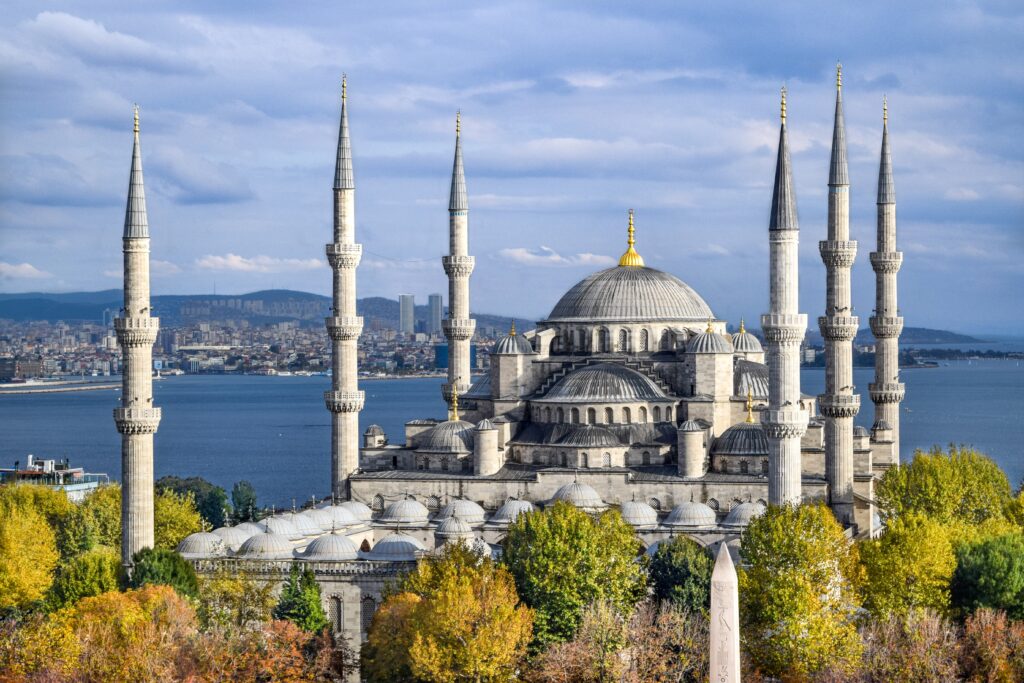The Gate of Constantinople
Oct 2, 2022 2001

A gate of Constantinople may have played a pivotal role in history.
Most people think that the Roman Empire fell in the fifth century AD. That’s actually not true. The Roman Empire actually continued almost until the modern era.
In AD 286, the Roman Emperor Diocletian divided the Roman Empire into two halves, the Western Roman Empire with its capital at Rome, and the Eastern Roman Empire with its capital at Byzantium. This division was confirmed by the Emperor Constantine I, who, in honour of himself, renamed the capital of the Eastern Empire “Constantinople.” After the emperor Theodosius I in the late fourth century, the empire was completely and permanently split into two separate emperors and two separate courts. The Greek-speaking eastern empire was always wealthier and stronger than the western empire.
Small things, like the gate of Constantinople, matter
When people talk about the fall of the Roman Empire, they are talking about the fall of the western empire, to the barbarian general Odoacer in AD 476. Before it’s fall, in that year, the Senate sent the imperial insignia to the Eastern Roman Emperor.
It’s because of our European-centric prejudices that we fail to see that the Roman Empire itself continued, with its capital at Constantinople, for almost 1,000 after the fall of the western part of the Roman empire. The Roman Empire continued in the east until 29 May 1453.
So, what happened on that day to finally bring an end to the last part of the Roman Empire? The Ottomans under Mehmet II conquered the Constantinople, and they renamed it Istanbul, the name by which it is known today.
Looking back from our vantage point today, it seems a foregone conclusion that Constantinople was doomed to fall. The last Byzantine emperor had run out of allies and was hugely outnumbered by the Mehmet’s army. This was the first major use of large cannons in warfare.
Someone had left the gate unlocked
However, the final “nail in the coffin” may have been a small oversight. According to the contemporary records, someone had left the “Kerokporta” northern gate of Constantinople unlocked. After having failed to breach the city walls during the 53-day siege, when the Ottomans attacked at dawn on the 29th of May, they found the gate unlocked and poured in.
It should be said that Turkish historians dispute this story of the unlocked gate of Constantinople as a western attempt to discredit the Ottoman victory. Whatever the case may be, it is still true in history that often momentous events have turned on small details.
You see, the little things really do matter.
When God delivered his people from slavery, he used tiny things in the plagues he sent upon Egypt, like flies and locusts and so on. Through them, he humbled a mighty empire.
In the prophecy of Daniel 7, there is a fearsome fourth beast with ten horns on its head. Then there is an inconspicuous-looking little horn that came up among them. Despite its small size, it uproots three of the other horns.
You see, it’s the small things that bring us down in life.
Yet it is also the smallest things that bring us the greatest value and blessing.
The little things matter to Jesus
Jesus knew the value of little things. Human beings usually value big things over the small. However, again and again, God reminds us that he loves and cares for those things that are small. Remember the lilies of the field (Matt. 6:28) and the little sparrow (Matt. 10:28–31)? Jesus even tells us that he cares for the hair on our heads! (Matt. 10:30.)
God cares about the small things in your life. We should never think that anything in our lives that troubles us, however insignificant it may be, is of no concern to God.
We should learn to see the small pleasures of life for what they truly are, as gifts from him. We should learn to share our troubles with God, no matter how small they may be. The apostle Peter tells us to,
Cast all your anxiety on him because he cares for you (1 Pet. 5:7.)
Ultimately, the Kingdom of God is made up of little things, like mustard seeds and yeast. The world despises the small things, however, never doubt the power of a little faith, a little kindness, and a little love.
Perhaps it’s time you focused a little more on the little things.

Leave a Reply